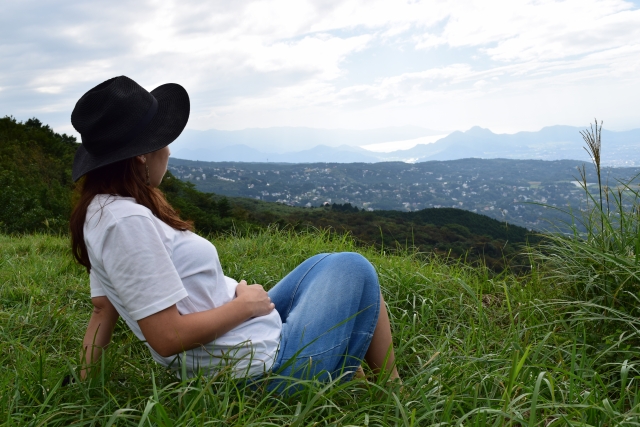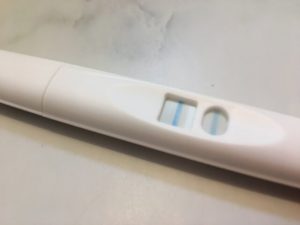In this article, we will introduce preparations and points to note when traveling during pregnancy, as well as how to choose your destination. Even during the stable period, troubles can occur at your travel destination. It’s important to make unique preparations for maternity travel so you can enjoy your day.
- Preparations to Make Before Traveling During Pregnancy
- Points to Be Aware of When Traveling During Pregnancy
- Points to Note for Different Modes of Transportation During Travel
- Things to Be Cautious of When Choosing a Travel Destination During Pregnancy
- Things to Be Cautious of at Accommodations During Pregnancy
- Conclusion
Preparations to Make Before Traveling During Pregnancy

After a baby is born, many people might think they won’t be able to travel for a while, so they consider traveling during pregnancy. Some couples plan trips to create memories together. Additionally, “maternity trips,” where expectant mothers enjoy traveling with their baby bump, have gained attention. However, if something were to happen to a pregnant woman during the trip, there’s a risk of danger to the unborn baby as well. Therefore, thorough preparation is necessary before traveling.
Informing the Accommodation in Advance That You Are Pregnant
For overnight trips, it’s important to inform the accommodation provider of your pregnancy when making reservations. Even if morning sickness has subsided and you’ve entered the stable period, pregnancy is often accompanied by fluctuations in health. While you may feel fine before the trip, minor changes in environment can sometimes cause physical discomfort. It’s essential to inform the accommodation provider in advance so they can assist you promptly if there are any changes in your health during your stay. Additionally, if you require specific dietary considerations, it’s helpful to communicate those as well.
Checking Necessary Items to Bring
During pregnancy, it’s important to prepare for any changes in your health while traveling. Firstly, don’t forget your health insurance card and maternal and child health handbook. These are necessary when visiting a hospital at your travel destination, so be sure not to leave them behind. Additionally, if you’re taking any prescribed medication or supplements, make sure to bring an ample supply.
Even if yukata (casual Japanese kimono) is provided at the accommodation, it’s recommended to bring your own pajamas or belly wraps to avoid chilling your abdomen. Regardless of the season, it’s wise to pack an extra layer like a cardigan or hoodie to keep your body warm.
For those prone to dry skin, bring along body cream. If you’re planning car travel, it’s reassuring to have disposable pads or a portable toilet handy for potential urinary leaks.
Checking Your Health Condition on the Day of Travel
Before traveling, things can get hectic with all the preparations. Try to get everything ready by the day before and use the morning of the travel day to check your own health condition. If you feel any different from usual, it may be necessary to decide to cancel the trip. Traveling while feeling unwell and risking something happening to yourself or your baby could lead to regrets later on. While it’s understandable not to want to cancel your trip after planning it, it’s important to act with the future in mind.
Points to Be Aware of When Traveling During Pregnancy
Here, I’ll introduce points to be aware of when traveling during pregnancy. During pregnancy, it’s important to consider the well-being of your baby and to be more cautious than usual. Let’s think about what mindset to have from planning your trip to the day of travel and make a plan accordingly.
Taking Frequent Rests Without Overexertion
There are plenty of things to enjoy while traveling, such as sightseeing and dining. Walking through crowded tourist spots can make you tire more easily than usual. Therefore, it’s important not to push yourself too hard and to take frequent breaks before feeling exhausted or unwell. Enjoy sightseeing while taking plenty of rests. To achieve this, when planning your trip, it’s crucial to set a schedule with ample time and avoid overloading your itinerary with too much movement. A plan with minimal travel is recommended.
Avoiding Activities That Strain the Body
During pregnancy, it’s best to avoid activities that involve vigorous movement or physical exertion. For instance, attractions at amusement parks like roller coasters or bungee jumping, which involve intense movements, are often restricted for pregnant women. Similarly, activities such as paragliding or skydiving are frequently prohibited for expectant mothers. Marine sports require extra caution. In particular, diving should be avoided as water pressure and oxygen levels could potentially harm the baby. Activities involving physical exertion, like obstacle courses, are also not recommended during pregnancy due to the risk of falls.
Avoiding Traveling During Peak Seasons
During pregnancy, it’s advisable to avoid traveling during peak holiday periods like Golden Week or Obon, which tend to be crowded. Walking through crowds while sightseeing increases the risk of bumping into people and falling. Moreover, being in crowded places can cause discomfort and potentially lead to feeling unwell. If traveling by car, there’s a chance of getting stuck in traffic. Pregnant women often experience frequent urination, so being stuck in traffic where access to restrooms is limited or crowded service areas can be stressful. To enjoy sightseeing without stress, it’s better to plan trips outside of peak holiday periods.
Avoiding International Travel
It’s advisable to avoid traveling abroad during pregnancy. Overseas destinations often have environments significantly different from Japan, including differences in food, climate, and time zones. These changes in environment can potentially lead to health issues. If you were to fall ill and require medical attention, accurately communicating your situation to foreign medical professionals might be challenging due to language barriers. Additionally, there’s the risk of not being able to use insurance and incurring high medical expenses. To avoid potential troubles, it’s not recommended to travel abroad during pregnancy.
Points to Note for Different Modes of Transportation During Travel
Here, I’ll provide points to be aware of during travel according to the mode of transportation. For nearby tourist destinations, you might commonly use a car or train, while for distant travel, flying is often the choice. Since each mode of transportation has different considerations, it’s important to check according to your chosen method of travel.
When Traveling by Car
Traveling by car has the advantage of being able to enjoy the trip without worrying about the surroundings. Additionally, it allows you to travel at your own pace, making it an easily manageable mode of transportation while considering your health condition.
However, there is a possibility of getting stuck in traffic, especially during peak times or in popular tourist destinations. Being stuck in traffic means you may not have easy access to restrooms, and you’ll have to sit in the same position for long periods. Depending on the destination, it might be more convenient to use public transportation. When traveling by car, it’s important to check for restroom and rest areas in advance and to make frequent stops for breaks.
When Traveling by Train
Traveling by train during pregnancy has the advantage of no traffic congestion and clear travel times, making it easier to plan sightseeing itineraries.
However, there’s a risk of underestimating transfer times and rushing to make connections, potentially leading to accidents or falls. It’s important to allow extra time for transfers and move at a more leisurely pace than usual. If you feel unwell during train travel, it’s recommended to disembark and take a rest without pushing yourself.
When Traveling by Plane
Traveling by airplane during pregnancy carries significant risks. Unlike other modes of transportation, once you’re on a plane, you can’t disembark if you start feeling unwell until you reach your destination. Additionally, some airlines may restrict the boarding of pregnant women, and depending on the stage of pregnancy, a medical certificate may be required. When planning to travel by plane during pregnancy, it’s important to check with the airline in advance.
While domestic flights are relatively short, international flights can involve long hours of travel. Considering the potential risks involved, it’s generally advisable to avoid traveling by airplane during pregnancy.
Things to Be Cautious of When Choosing a Travel Destination During Pregnancy
Here, I’ll introduce points to consider when choosing a travel destination during pregnancy. The considerations vary depending on the location. Let’s check the relevant points according to the planned tourist destinations.
Leisure Facilities
When visiting leisure facilities or theme parks with various events and attractions, it’s natural to want to enjoy everything they offer. However, during pregnancy, it’s important to be aware that your body may not feel the same as usual, so try to take it easy and enjoy at a relaxed pace. Particularly, intense attractions like roller coasters are not recommended during pregnancy. Choose attractions where you can leisurely enjoy while considering the well-being of your baby.
Furthermore, it’s best to avoid outdoor theme parks during scorching summers or harsh winters. Crowded times can lead to long wait times, and extreme temperatures can affect your health. If you want to enjoy leisure facilities during peak seasons, opt for indoor theme parks where the temperature is controlled.
Environments with Nature or Ranches
Tourist spots with abundant natural scenery are recommended for relaxation and mood refreshment. However, when engaging in active sightseeing activities like hiking, caution is necessary. While the physical stamina of pregnant women varies, hiking carries the risk of falls. Even for those who regularly enjoy activities like mountain climbing, extra care is required during pregnancy.
Interacting with various animals at a ranch can be a great way to unwind. However, when directly interacting with large animals, be mindful of the possibility of collisions or falls. In general, it’s advisable to choose places where you can enjoy a leisurely time without exerting too much physical effort.
Sea or Rivers
When enjoying the sea or river, be mindful of UV rays. While moderate sun exposure is essential for generating vitamin D, bodies of water like the sea or river tend to reflect sunlight, making UV rays stronger. During pregnancy, hormonal changes can make your skin more prone to developing blemishes or freckles. Prolonged exposure to UV rays can potentially lead to skin issues.
Additionally, when enjoying beach activities, be cautious of bacterial infections. When swimming in the sea, it’s advisable not to immerse your entire body and instead enjoy by dipping only your feet.
Things to Be Cautious of at Accommodations During Pregnancy
Here, I’ll introduce things to be mindful of when staying at accommodations during pregnancy.
Resort Hotels
At resort hotels, you might also consider getting a massage. When receiving an aromatherapy massage, it’s important to inform the masseuse beforehand that you’re pregnant. They’ll need to select essential oils that are safe for use during pregnancy. If you start feeling any discomfort or tightening of the abdomen during the massage, be sure to immediately inform the masseuse and ask them to stop.
Additionally, if the resort hotel has a pool, you might feel tempted to take a dip. However, be cautious as cold water temperatures can cause your abdomen to cool down.
Ryokan (Japanese-Style Inns)
At hot spring inns, you may wish to soak in the hot spring and relax. However, during pregnancy, it’s advisable to avoid prolonged soaking in hot baths at high temperatures. It’s recommended to soak in lukewarm water instead.
While the quality of hot spring water typically has little effect on the baby, it’s essential to be cautious of the risk of infections. To minimize the risk of infection, it’s preferable to choose inns with hot spring baths attached to the rooms. Additionally, be mindful of slippery floors due to wetness, as this can increase the risk of falls.
Conclusion
Traveling during pregnancy can lead to more rapid changes in your health than usual. Therefore, careful preparation is essential. Additionally, it’s advisable to prepare for various potential issues. Even during pregnancy, selecting the right destination and mode of transportation is crucial for ensuring you have a good time. Avoid overly active sightseeing activities during pregnancy and instead focus on enjoying your time leisurely and without strain.
【References】
- What is the Combined Test, a prenatal test that can be performed at 11-13 weeks of pregnancy? | NIPT Reservation Center
- What is the Combined Test? Differences from other tests | DNA Advanced Medical Corporation
- Ultrasound Marker Test, Combined Test | Committee for the Certification System for Prenatal Diagnosis, etc.
- What is the Combined Test? | GeneTech Corporation
- What is the difference between the new prenatal diagnosis (NIPT) and fetal dock? What if you’re undecided about which one to take? | NIPT Reservation Center
Q&A
-
QTell the family doctor about the trip?Be sure to inform your family physician if you are traveling while pregnant. Some people may not tell their family doctor, thinking that they may be stopped from traveling or that it will not be a problem since it is only for one night. However, if you consult your doctor or midwife in advance, they may be able to provide you with information on how to enjoy your trip with less risk. Consultation with your family doctor is recommended in order to enjoy a trouble-free trip.
-
QWhat if I get sick on my trip?Research hospitals and obstetricians in your destination in advance so that you can visit a hospital immediately if you become ill on your trip. It is not impossible for a person to become ill late at night. Therefore, it is a good idea to check hospitals that provide emergency care at night.
-
QWhat should not be eaten on vacation?Even when traveling, avoid eating foods that should be avoided during pregnancy. Of particular concern are Toxoplasma and Listeria. Raw meat and natural cheese should be avoided. Cheese that has not been pasteurized is not recommended. Care should also be taken not to eat too much raw food such as sashimi and sushi.
Article Editorial Supervisor

Dr Hiroshi Oka
NIPT specialist clinic, MD
Graduated from Keio University, School of Medicine
 中文
中文






















